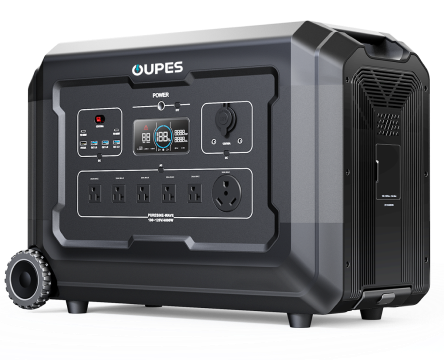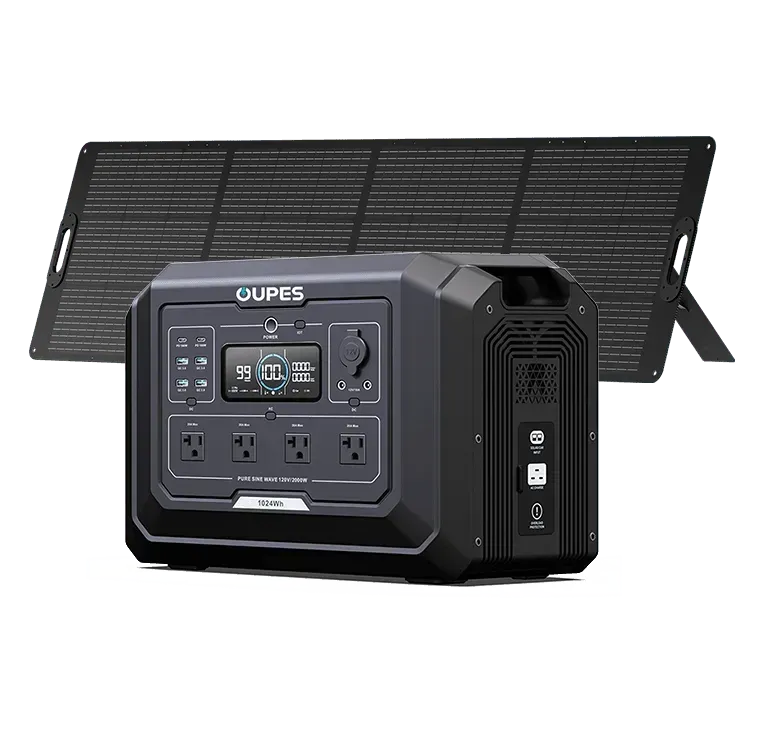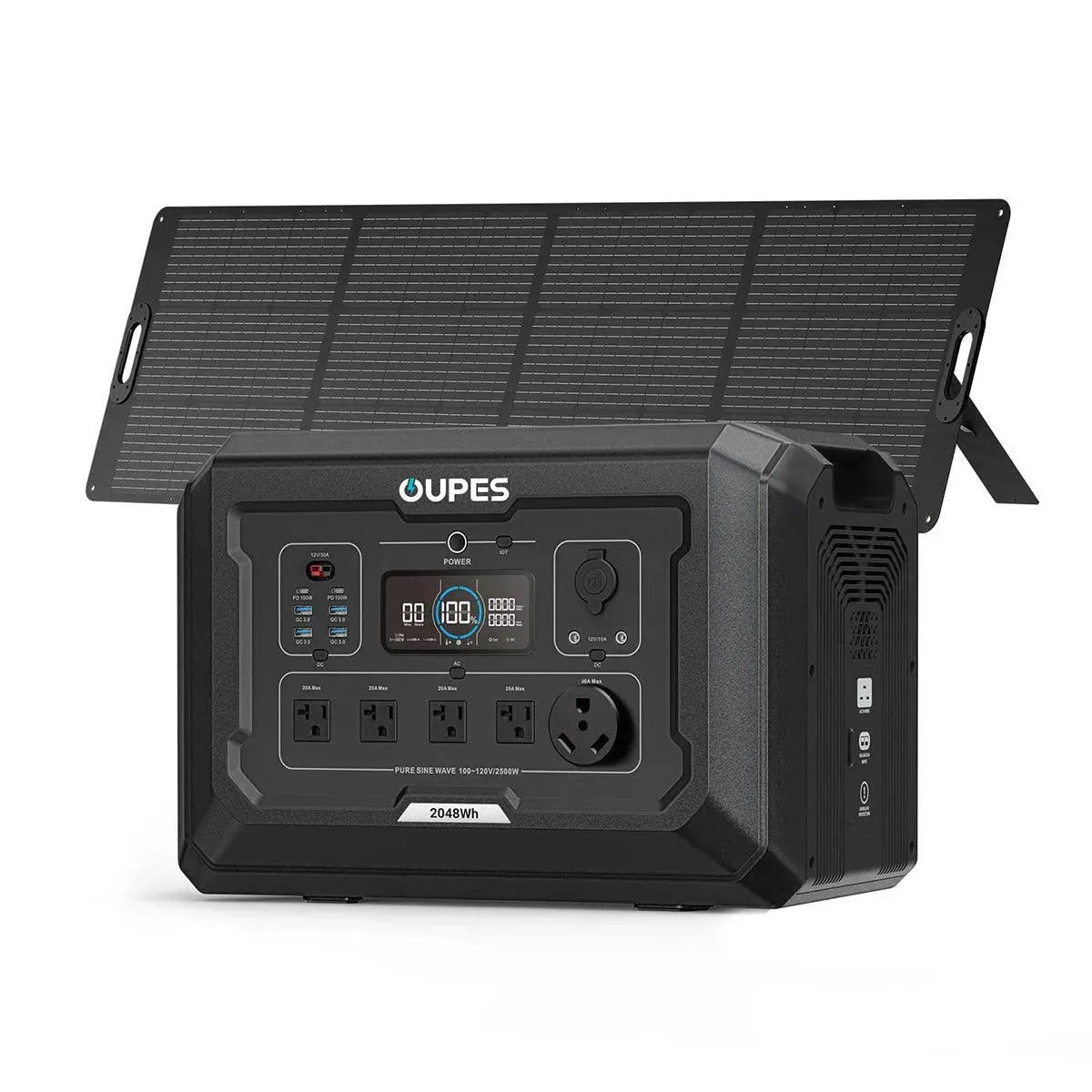
When it comes to providing power in remote locations or during emergencies, the choice between solar power and traditional generators has become a point of considerable discussion. With the growing concern over environmental sustainability and the increasing reliance on off-grid solutions, understanding the pros and cons of each option is more important than ever. This article dives deep into both solar power systems and conventional generators to help you make an informed decision about which one might be better suited for your needs.
Understanding Solar Power Systems
Solar power systems operate by converting sunlight into usable electricity. The technology behind solar power has been evolving rapidly over the last few decades, making it an increasingly popular alternative energy source. Solar panels are the main component of these systems, consisting of photovoltaic (PV) cells that capture sunlight and convert it into direct current (DC) electricity. This electricity is then stored in batteries or used immediately, depending on the system’s design.
The primary benefit of solar power is that it is a renewable resource. The sun's energy is abundant and free, and using solar energy doesn't deplete natural resources or contribute to pollution in the same way fossil fuels do. Solar power systems can be installed on rooftops or in open areas with optimal exposure to sunlight, making them highly versatile. These systems typically require low maintenance, especially when compared to fossil fuel-based generators that need regular refueling and upkeep.
One of the most significant advantages of solar power is its environmental impact. Solar energy is clean, producing no emissions or harmful pollutants during the energy generation process. This makes it an excellent choice for people looking to reduce their carbon footprint and contribute to a more sustainable world. Additionally, solar power systems can last for 25 years or more with minimal degradation in performance, providing long-term value to users.
However, the biggest drawback of solar power is its reliance on sunlight. Solar panels are most effective when they receive direct sunlight, which means that their efficiency can be significantly reduced in cloudy or shaded areas. This dependency on weather conditions can be a limitation for those who live in regions with frequent overcast or limited sun exposure. Despite this, advancements in energy storage systems, such as improved battery technology, have helped mitigate some of these challenges by allowing users to store excess energy generated during sunny days for use at night or on cloudy days.
The Functionality and Benefits of Traditional Generators
Traditional generators, typically powered by gasoline, diesel, or propane, have been the go-to solution for backup power and off-grid energy needs for decades. These machines generate electricity through an internal combustion engine that burns fuel to produce mechanical energy, which is then converted into electrical power. Generators are highly effective at providing a reliable and consistent power source, particularly in emergency situations when access to the electrical grid may be unavailable.
One of the biggest advantages of traditional generators is their reliability. Unlike solar power, which depends on sunlight, a generator can provide electricity as long as there is fuel. This makes generators a go-to solution for areas where power outages are common or where there is no access to a power grid. Additionally, the ability to use generators to power large appliances or multiple devices simultaneously is another significant benefit. Whether you're running an air conditioning unit, refrigerator, or a power tool, a traditional generator is often capable of handling high energy demands.
However, traditional generators come with several disadvantages, particularly when it comes to environmental and operational costs. One major issue is the reliance on fossil fuels. Gasoline, diesel, and propane are not only finite resources but also polluting, emitting harmful gases like carbon dioxide and nitrogen oxide. This contributes to air pollution and global warming. Moreover, the cost of fuel can fluctuate, making it difficult to predict long-term operational expenses. While some generators can run on propane, which is less polluting than gasoline or diesel, they still have a carbon footprint.
Another significant downside is the noise generated by traditional engines. Gas-powered generators are notorious for their loud operation, which can be disruptive in quiet environments or residential areas. In addition, they require regular maintenance, including oil changes, fuel refills, and periodic engine checks. This makes them less convenient for long-term use compared to solar power systems, which require very little maintenance.
Cost Comparison: Solar Power vs. Traditional Generators
When considering whether to invest in solar power or a traditional generator, the initial cost is one of the first factors that most people examine. Solar power systems often have a higher upfront cost due to the price of solar panels, batteries, and inverters. The cost of a solar installation can range significantly depending on the size of the system, the quality of the components, and whether professional installation is required. For residential systems, this can easily amount to several thousand dollars.
However, the operational costs of solar power are significantly lower than those of traditional generators. Solar energy is free, and once the system is installed, there are very few ongoing costs. The only significant expenses are for occasional maintenance, such as cleaning the panels and replacing batteries after many years of use. Over time, the savings on electricity bills and the lack of ongoing fuel costs can make solar power a much more cost-effective solution.
In contrast, the cost of a traditional generator is generally much lower at the point of purchase. You can purchase a portable generator for a few hundred dollars, while larger standby generators may cost several thousand. However, unlike solar power systems, traditional generators require a constant supply of fuel, which means you will continue to incur ongoing costs as long as the generator is in use. Additionally, maintenance costs can add up over time, as gas-powered generators require oil changes, spark plug replacements, and regular checks to keep the engine running smoothly.
It is also important to consider the longevity of the investment. Solar power systems are designed to last for decades, with solar panels typically coming with warranties of 20 to 25 years. In contrast, traditional generators may only last for 10 to 15 years before needing significant repairs or replacements. This means that while the initial investment in solar power may be higher, the long-term cost-effectiveness can outweigh that of traditional generators.
Environmental Impact: Which is Greener?
The environmental impact of energy generation is a crucial factor for many people when deciding between solar power and traditional generators. As climate change continues to be a pressing global issue, reducing our reliance on fossil fuels and minimizing greenhouse gas emissions has become more important than ever. In this regard, solar power is the clear winner.
Solar power is a clean, renewable energy source. Once installed, solar panels produce electricity without emitting any harmful pollutants or greenhouse gases. The energy produced by solar systems does not contribute to air pollution or climate change, making it an environmentally friendly option. Even the production of solar panels, while requiring energy and materials, has a lower overall environmental impact than that of fossil fuel-based generators. As technology improves, the manufacturing process of solar panels is becoming increasingly efficient and less resource-intensive.
Traditional generators, on the other hand, rely on fossil fuels such as gasoline, diesel, or propane. Burning these fuels releases carbon dioxide, nitrogen oxides, and particulate matter into the atmosphere, contributing to air pollution and climate change. Additionally, the extraction and transport of fossil fuels have their own environmental costs, including habitat destruction, oil spills, and pollution from refineries. Even though newer models of generators may have improved efficiency and lower emissions, they still produce pollutants during operation.
For individuals and organizations looking to reduce their carbon footprint and make more sustainable choices, solar power is the clear choice. While solar power requires an initial investment in technology, the long-term benefits of cleaner air, reduced greenhouse gas emissions, and a more sustainable energy system far outweigh the environmental costs associated with traditional generators.
Practical Considerations for Choosing Between Solar Power and Traditional Generators
When deciding whether solar power or a traditional generator is the better option, there are several practical considerations to keep in mind. Your location, energy needs, and budget are all important factors in making the right decision.
For individuals who live in areas with abundant sunlight and minimal cloud cover, solar power can be an excellent solution. Solar panels are most effective in sunny locations, and when combined with efficient battery storage systems, they can provide reliable power even on cloudy days or at night. Solar power is also ideal for people who are looking for a long-term, low-maintenance solution. Once installed, solar systems require very little upkeep and can continue to provide power for decades.
In contrast, traditional generators may be a better choice for people who need immediate, reliable power in locations with inconsistent sunlight or during emergencies. If you need to power large appliances or require backup power during extended outages, a traditional generator may provide the immediate solution you need. Generators are also more flexible in terms of mobility, as portable units can be easily moved to different locations as needed.
Ultimately, the decision between solar power and traditional generators depends on your specific needs, location, and willingness to invest in long-term sustainability. If you are primarily concerned with environmental impact and long-term cost savings, solar power may be the better option. If you need a quick, reliable solution for occasional power outages or heavy-duty applications, a traditional generator may serve you better.
In conclusion, both solar power and traditional generators have their strengths and weaknesses. Solar power offers a sustainable, long-term solution with minimal maintenance and operating costs, but it requires sunny conditions and a higher initial investment. On the other hand, traditional generators provide reliable power in nearly any condition but come with ongoing fuel costs, maintenance needs, and environmental impacts. By carefully




























